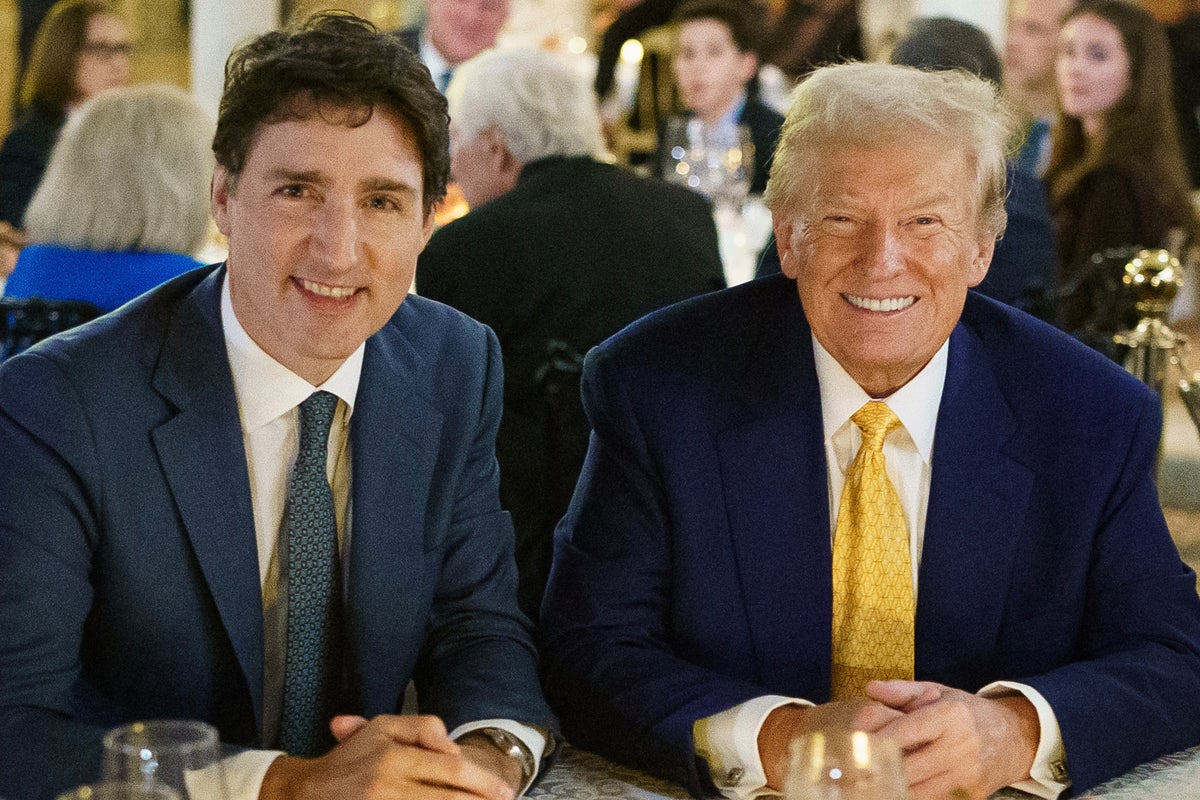Understanding Trump's Jabs At Canada: The 51st State Debate

Table of Contents
Historical Context: A Look at Past US-Canada Relations
The relationship between the United States and Canada is a long and complex one, marked by periods of both intense cooperation and significant tension. Understanding this history is crucial to interpreting Trump's rhetoric. While often portrayed as peaceful neighbors, the US and Canada have experienced their share of disagreements.
-
Examples of historical disagreements:
- The War of 1812: This conflict highlighted significant differences and rivalries, leaving a lasting impact on the relationship.
- Boundary disputes: Throughout history, disagreements over borders and resource allocation have occasionally strained relations. The Oregon Boundary Treaty of 1846, for example, resolved a significant territorial dispute.
-
Examples of periods of strong cooperation:
- North American Air Defense Command (NORAD): This joint military alliance demonstrates a high level of trust and collaboration on matters of national security.
- Shared economic interests: The close economic ties between the two countries have fostered significant cooperation on trade and economic policy.
Despite occasional friction, the overall history of US-Canada relations has been largely positive and peaceful, characterized by a strong emphasis on diplomacy and compromise. This historical context is crucial for understanding the current political climate.
Economic Factors: Trade Disputes and Their Influence
The US and Canada are deeply intertwined economically. The North American Free Trade Agreement (NAFTA), later replaced by the United States-Mexico-Canada Agreement (USMCA), exemplifies this interdependence. However, Trump's presidency saw a significant increase in trade tensions.
- Trade imbalances and Trump's protectionist policies: Trump frequently criticized the trade relationship, citing perceived imbalances and advocating for protectionist measures.
- Impact of tariffs and trade disputes on the Canadian economy: The imposition of tariffs on Canadian goods created significant economic uncertainty and had a measurable negative impact on certain sectors of the Canadian economy.
- Economic tensions fueling political rhetoric: These economic disagreements often provided fodder for Trump's criticisms of Canada, further escalating the political rhetoric. The use of trade as a political tool became a defining characteristic of this period.
The economic interdependence between the two nations highlights the complexities involved in navigating trade disagreements and underscores the potential for such disagreements to spill over into broader political discourse.
Political Motivations: Domestic Politics and Electoral Strategy
Trump's jabs at Canada often served a clear domestic political purpose. Analyzing his rhetoric reveals a strategic use of Canada as a political scapegoat.
- Rallying the base: Criticizing Canada, particularly on trade issues, could rally his base of supporters who favored protectionist policies and a more assertive American stance in international relations.
- Diverting attention from domestic issues: Focusing on external threats, such as perceived unfair trade practices by Canada, could serve as a distraction from domestic controversies.
- Nationalism and populist rhetoric: Trump's statements often tapped into nationalist sentiments and populist rhetoric, effectively framing Canada as a threat to American interests and jobs.
Understanding the domestic political context is essential for deciphering the true motivations behind Trump's statements.
The 51st State: A Realistic Possibility?
The notion of Canada becoming the 51st state of the United States is, to put it frankly, unrealistic. This idea is largely unsubstantiated and ignores significant legal, political, and social realities.
- Legal and constitutional hurdles: The process of incorporating a new state into the US is complex and requires the consent of both the Canadian and US governments, along with amendments to the US Constitution – a process requiring significant bipartisan support, which is highly unlikely given Canadian opposition.
- Overwhelming Canadian opposition: The vast majority of Canadians have consistently expressed strong opposition to such a proposition. Canadian sovereignty and national identity are fiercely protected.
- Impracticalities of such a merger: The sheer scale and complexity of integrating two distinct political systems, legal frameworks, and cultures would present enormous logistical and administrative challenges.
The "51st state" narrative, therefore, should be understood as largely symbolic, reflecting a particular political strategy rather than a serious policy proposal.
Public Opinion: Canadian and American Perspectives
Public opinion in both Canada and the United States significantly influences the bilateral relationship. Examining these opinions provides crucial context.
- Polls and surveys: Numerous polls and surveys consistently show diverging opinions on the US-Canada relationship in both countries. American public opinion is often more influenced by political rhetoric, while Canadian opinion tends to be more nuanced.
- Implications of differing public opinions: The differences in public opinion impact the political dynamics between the two countries, highlighting the challenges in navigating bilateral relations during periods of political tension. Understanding these differing perceptions is critical to fostering better understanding.
Conclusion
Trump's jabs at Canada, while often inflammatory, are largely driven by a complex interplay of economic tensions, domestic political strategies, and historical nuances. The idea of Canada becoming the 51st state remains highly unrealistic due to formidable legal, political, and public opinion obstacles. Understanding the intricacies of the US-Canada relationship is crucial. Further research into the historical context, economic interdependence, and political motivations behind Trump’s rhetoric will provide a more nuanced understanding of this complex issue. Continue learning about the intricacies of the "Trump's Jabs at Canada: The 51st State Debate" to foster a better understanding of international relations.

Featured Posts
-
 Tornado And Flooding Emergency Louisville Under State Of Emergency
Apr 30, 2025
Tornado And Flooding Emergency Louisville Under State Of Emergency
Apr 30, 2025 -
 Trampa Sravnili So Zlobnym Samovlyublennym Sliznyakom V Kanade Podrobnosti Ot Unian
Apr 30, 2025
Trampa Sravnili So Zlobnym Samovlyublennym Sliznyakom V Kanade Podrobnosti Ot Unian
Apr 30, 2025 -
 Prof Iva Khristova Toploto Vreme I Negovoto Vliyanie Vrkhu Gripa
Apr 30, 2025
Prof Iva Khristova Toploto Vreme I Negovoto Vliyanie Vrkhu Gripa
Apr 30, 2025 -
 Islensk Fotboltadagskra T Hrir Leikir I Bestu Deildinni
Apr 30, 2025
Islensk Fotboltadagskra T Hrir Leikir I Bestu Deildinni
Apr 30, 2025 -
 President Trumps First 100 Days 39 Approval Rating And Travel Issues
Apr 30, 2025
President Trumps First 100 Days 39 Approval Rating And Travel Issues
Apr 30, 2025
